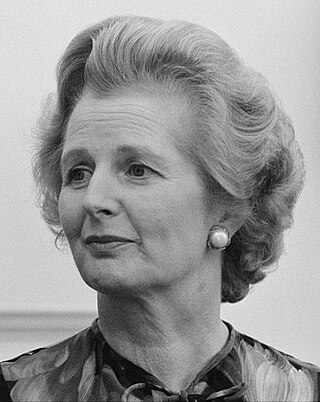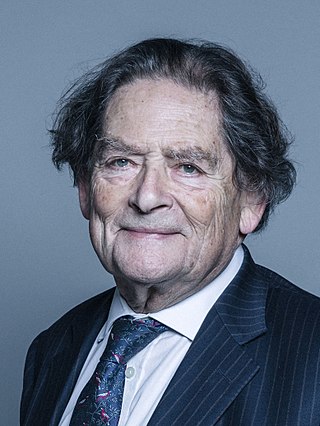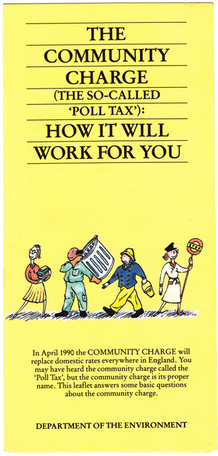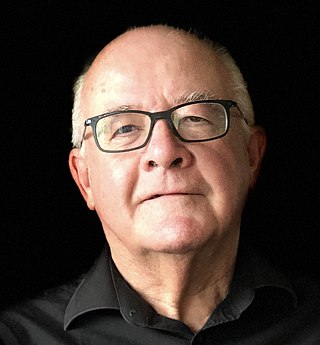
Michael Mackintosh Foot was a British politician who was Leader of the Labour Party and Leader of the Opposition from 1980 to 1983. Foot began his career as a journalist on Tribune and the Evening Standard. He co-wrote the 1940 polemic against appeasement of Hitler, Guilty Men, under a pseudonym.
The Conservative and Unionist Party, commonly the Conservative Party and colloquially known as the Tories, is one of the two main political parties in the United Kingdom, along with the Labour Party. Following defeat by Labour in the 2024 general election, it is currently the second largest political party by the number of votes cast and number of seats in the House of Commons, followed by the Liberal Democrats. As the second largest party, it has the formal parliamentary role of the Official Opposition. The party sits on the right-wing to centre-right of the political spectrum. It encompasses various ideological factions including one-nation conservatives, Thatcherites, and traditionalist conservatives. There have been twenty Conservative prime ministers. The party traditionally holds the annual Conservative Party Conference during party conference season, at which senior Conservative figures promote party policy.

The 1979 United Kingdom general election was held on Thursday 3 May 1979 to elect 635 members to the House of Commons. The election was held following the defeat of the Labour government in a no-confidence motion on 28 March 1979, six months before the Parliament was due for dissolution in October 1979.

Thatcherism is a form of British conservative ideology named after Conservative Party leader Margaret Thatcher that relates to not just her political platform and particular policies but also her personal character and style of management while in office. Proponents of Thatcherism are referred to as Thatcherites. The term has been used to describe the principles of the British government under Thatcher from the 1979 general election to her resignation in 1990. In international terms, Thatcherites have been described as a part of the general socio-economic movement known as neoliberalism, with different countries besides the United Kingdom sharing similar policies around expansionary capitalism.

Nigel Lawson, Baron Lawson of Blaby, was a British politician and journalist. A member of the Conservative Party, he served as Member of Parliament for Blaby from 1974 to 1992, and served in Margaret Thatcher's Cabinet from 1981 to 1989. Prior to entering the Cabinet, he served as the Financial Secretary to the Treasury from May 1979 until his promotion to Secretary of State for Energy. He was appointed Chancellor of the Exchequer in June 1983 and served until his resignation in October 1989. In both Cabinet posts, Lawson was a key proponent of Thatcher's policies of privatisation of several key industries.

Constance Mary Whitehouse was a British teacher and conservative activist. She campaigned against social liberalism and the mainstream British media, both of which she accused of encouraging a more permissive society. She was the founder and first president of the National Viewers' and Listeners' Association, through which she led a longstanding campaign against the BBC. A hard-line social conservative, she was termed a reactionary by her socially liberal opponents. Her motivation derived from her Christian beliefs, her aversion to the rapid social and political changes in British society of the 1960s, and her work as a teacher of sex education.

The Community Charge, commonly known as the poll tax, was a system of local taxation introduced by Margaret Thatcher's government whereby each taxpayer was taxed the same fixed sum, with the precise amount being set by each local authority. It replaced domestic rates in Scotland from 1989, prior to its introduction in England and Wales from 1990. The abolition of the poll tax was announced in 1991 and it was replaced in 1993 by the current system of the Council Tax.

The 1959 United Kingdom general election was held on Thursday, 8 October 1959. It marked a third consecutive victory for the ruling Conservative Party, now led by Prime Minister Harold Macmillan. For the second time in a row, the Conservatives increased their overall majority in Parliament, this time to a landslide majority of 100 seats, having gained 20 seats for a return of 365. The Labour Party, led by Hugh Gaitskell, lost 19 seats and returned 258. The Liberal Party, led by Jo Grimond, again returned only six MPs to the House of Commons, but managed to increase its overall share of the vote to 5.9%, compared to just 2.7% four years earlier.

The Christian Peoples Alliance (CPA) is a minor Christian right political party in the United Kingdom. The party was founded in its present form in 1999, having grown out of a cross-party advocacy group called the Movement for Christian Democracy. The first leader of the party was Ram Gidoomal; Alan Craig took over from him in 2004 and resigned in 2012. He was replaced by Sidney Cordle, the party's current leader.
The Born Free Foundation is an international wildlife charity that campaigns to "Keep Wildlife in the Wild". It protects wild animals in their natural habitat, campaigns against the keeping of wild animals in captivity and rescues wild animals in need. It also promotes compassionate conservation, which takes into account the welfare of individual animals in conservation initiatives. Born Free also creates and provides educational materials and activities that reflect the charity's values.
Traidcraft was a UK-based Fairtrade organisation, established in 1979. Its trading arm, Traidcraft plc, which sold fairly traded products, went into administration in January 2023.

Roy Clements is a British author and former Christian minister. He was a leading figure within Britain's Evangelical Christian movement for more than two decades until in 1999 he left his wife, resigned from his pastoral ministry and revealed that he is gay.
Restrictions on sexual activity involving minors in the United Kingdom and its predecessors have existed since medieval times. During the 1970s, there was some political advocacy in favour of significantly reducing the age of consent, supported by various 'youth liberation' organizations and mostly by members of the Paedophile Information Exchange. Meanwhile, over a similar time period, the unequal age of consent for straight and gay young people was campaigned against by the LGBT rights movement. More recently arguments have occasionally been made in favour of reducing the age of consent, generally to an earlier point in adolescence.
"The longest suicide note in history" is an epithet originally used by United Kingdom Labour MP Gerald Kaufman to describe his party's 1983 general election manifesto, which emphasised socialist policies in a more profound manner than previous such documents—and which Kaufman felt would ensure that the Labour Party would fail to win the election.
The Labour Party is a political party in the United Kingdom that sits on the centre-left of the political spectrum. In a broader sense, the party has been described as an alliance of social democrats, democratic socialists and trade unionists. It is the governing party of the United Kingdom, having won the 2024 general election, and is currently the largest political party by number of votes cast and number of seats in the House of Commons, followed in seat share by the Conservative Party and the Liberal Democrats. There have been seven Labour prime ministers and fourteen Labour ministries. The party traditionally holds the annual Labour Party Conference during party conference season, at which senior Labour figures promote party policy.

Barnaby Kemp Graham Miln is a British social activist and former magistrate. He was the first lay person to come out as gay in the General Synod of the Church of England and thereby the most publicly gay magistrate in England and Wales.
City of Faith Church is a multi-cultural church in South London situated in the London Borough of Lewisham which has faced local opposition. From 1996 until 2015, the congregation was a church in fellowship with the Assemblies of God in Great Britain, a worldwide Pentecostal denomination. The church is part of a network of local and international branches.

Socialism in the United Kingdom is thought to stretch back to the 19th century from roots arising in the English Civil War. Notions of socialism in Great Britain have taken many different forms from the utopian philanthropism of Robert Owen through to the reformist electoral project enshrined in the Labour Party that was founded in 1900 and nationalised a fifth of the British economy in the late 1940s.

Dr. Michael Schluter CBE, is a British social thinker and social entrepreneur who founded Britain's Relationships Foundation.

The social history of the United Kingdom (1979–present) began with Conservative Prime Minister, Margaret Thatcher (1979–1990) entering government and rejecting the post-war consensus in the 1980s. She privatised most state-owned industries and worked to weaken the power and influence of the trade unions. The party remained in government throughout most of the 1990s albeit with growing internal difficulties under the leadership of Prime Minister John Major (1990–1997).












